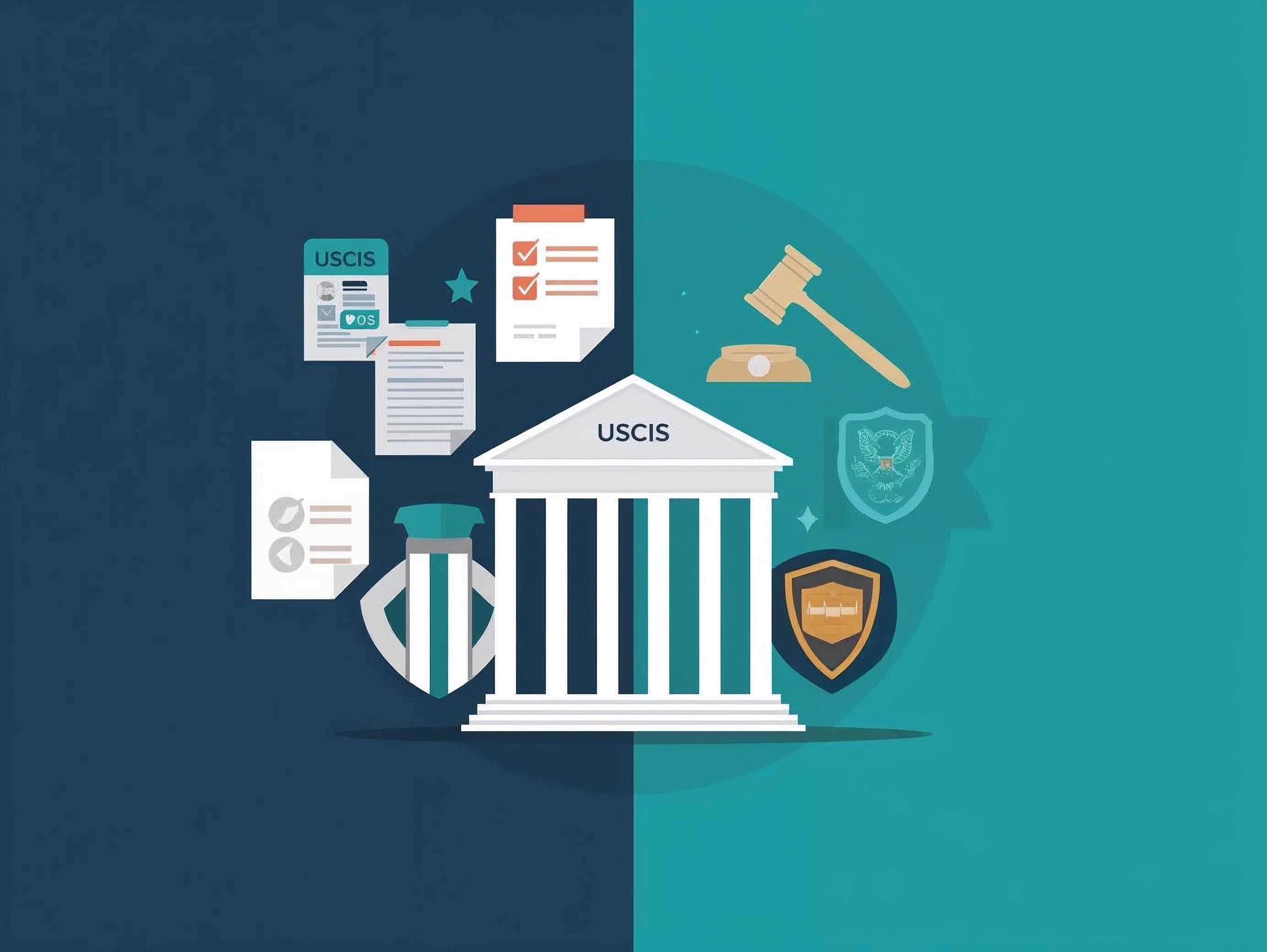
Immigration Updates

Mia Giacomazzi
USCIS’s New Enforcement Arm: What You Need to Know
Sep 22, 2025
Relevant tags(s):
USCIS
Immigration Law
Policy Update
Immigration Update
USCIS is stepping into a new role: law enforcement agency.
On September 4, 2025, USCIS published a final rule creating a team of special agents (1811 classification) with authority to:
Carry firearms
Execute search and arrest warrants
Arrest individuals suspected of fraud or immigration violations
Conduct investigations independently of ICE or HSI
This marks a significant expansion of USCIS’s role, shifting it from primarily adjudicating benefits to actively investigating and enforcing immigration law.
📜 What the Rule Says
USCIS now has direct authority under the Immigration and Nationality Act to investigate, arrest, and enforce immigration violations.
The agency will recruit and train special agents to take on cases traditionally referred to ICE or HSI.
USCIS can manage cases end-to-end, from application review to investigation and referral for prosecution.
🔍 What We Don’t Know Yet
Because this policy is brand-new, a lot is still uncertain:
How quickly will USCIS ramp up this new unit?
Will there be door-to-door investigations or more site visits?
What safeguards and oversight will be implemented to avoid overreach?
Will enforcement divert resources from the already overloaded benefits system?
⚠️ How This Might Play Out
We could see:
More fraud-focused investigations into patterns of misrepresentation
Increased site visits to employers or applicants’ homes
A chilling effect on applicants, who may fear enforcement consequences
Coordination challenges with ICE, HSI, and DOJ as USCIS assumes overlapping authority
🛠 What Applicants & Employers Should Do
Stay Organized: Keep thorough documentation of applications, employment records, and compliance policies.
Prepare for Scrutiny: Expect more questions, RFEs, and possibly interviews tied to investigations.
Monitor Guidance: Watch for policy updates, internal memos, and litigation challenging this rule.
Seek Expert Help: Immigration counsel can help ensure your filings are airtight and compliant.
🔎 Why This Matters
USCIS has long been seen as the agency you file your applications with—not the one that comes knocking. This rule changes that dynamic.
Whether this leads to more trust in the system or greater fear of applying will depend on how USCIS rolls out this authority, how agents are trained, and how much transparency surrounds these investigations.
We’ll be watching closely to see whether this shift improves system integrity or further burdens immigrants, employers, and an already strained agency.
